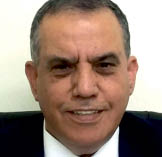General measures
- Regularly and thoroughly clean your hands with soap and water or by using an alcohol-based gel to kill viruses that may be on your hands.
- Maintain at least a three-foot (one meter) distance between yourself and other persons because the disease is transmitted through droplets that are caused by talking, sneezing, and coughing. The droplets are heavy and fall on any surrounding surfaces. Make sure to clean and disinfect surfaces such as tabletops.
- Avoid touching your eyes, nose, and mouth (virus point entries to the body) before washing your hands.
- Make sure you and the people around you follow good respiratory hygiene by covering your mouth and nose with your bent elbow or a paper tissue when you cough or sneeze, then dispose of the used tissue immediately in a closed container.
- If you develop any signs such as a fever, cough, or breathing difficulties, call a preventive medicine doctor immediately.
- Older persons whose immune systems are compromised or who are suffering from chronic heart or lung diseases, cancer, hypertension, or diabetes must avoid contact with persons who are ill or who are suspect.
- Children can carry the virus without showing symptoms and must therefore avoid contact with their grandparents or other older people because they could transmit Covid-19 to them.
- Drink lots of liquids.
- Eat many fruits and vegetables.
- Eat fruits with vitamin C (such as oranges, lemons, etc.) to strengthen the immune system.
- Avoid kissing children or having close contact with them.

Masks are not recommended at all for the general public. They are recommended only for patients and the surrounding household contact persons. Thus, the recommendations in this section on mask use apply to situations of isolation and quarantine.
Eidemic and pandemic mitigation strategies
A doctor’s concern: masks give a false sense of security to the persons wearing them. It is difficult not only to find a mask that fits perfectly around your nose and mouth but also to keep it on your nose and mouth for long periods of time. When you take off the mask, the outside can be contaminated, and you could touch the virus. By touching your eyes or trying to reach your mouth or nose through the mask you will lose the protection.
Surgical masks are recommended only for infected patients and for the people around them. Patients release many droplets by coughing, sneezing, or talking to others. In these cases, masks protect other people from droplets/splashes in case the patient sneezes or coughs.


Social distancing
Beyond isolation and quarantine, combatting strategies recommend social distancing, which involves the following measures:
- Close nonessential businesses and noncritical services.
- Close public gathering places.
- Cancel public gatherings and community events.
- Close, limit, or restrict nonessential movement.
Limit or cancel community services, depending on pandemic severity.
Identify vulnerable segments of the population and fulfil their needs by bringing community stakeholders together.
These public health measures aim to ensure the following outcomes
- The limiting of transmission between infected patients and others and reducing secondary infections.
- The provision of care for infected people through isolation and follow-up.
- The minimization of social and economic impact through multisector partnerships.
- The containment of the disease and the delay of its spread in the hope that anti-viral medication and vaccines would be found as soon as possible, and that the necessary equipment (e.g., breathing machines) be made available in sufficient numbers.




